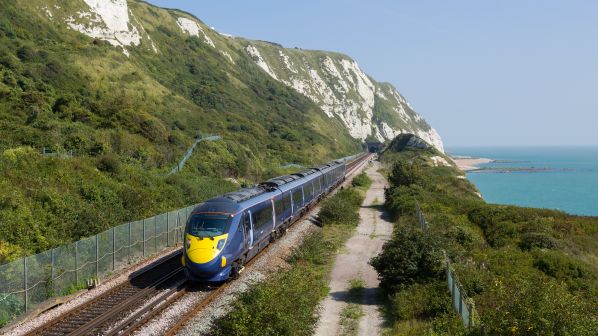REFORM of Britain’s franchising system for passenger rail operation was very much on the horizon in early 2020.
Northern had already entered public ownership, joining the ill-fated East Coast franchise, which has yo-yoed between public and private operation for the last decade or so. West Midlands Trains was also ordered to spend £20m to improve service quality following persistent poor performance while contingency plans were being drawn up in anticipation of the failure of the South Western Railway (SWR) franchise.
Transport secretary, Mr Grant Shapps, said at the time that the findings of a review led by Mr Keith Williams would inform the direction that a new model would take and that he favoured a concessions system similar to that used by Transport for London services.
“The current system is broken,” Shapps said in February 2020. “It has done very well at doubling the passengers on the railway to 1.8 billion since privatisation. It was OK for the time, but it is too complex now and it is difficult with the railway so packed and running so many trains to coordinate it. I think we need a new system.”
Then the pandemic hit.
While Britain was slower to lockdown than its European neighbours, the instruction by prime minister Mr Boris Johnson to “stay at home” on March 23 2020 finally confirmed that passenger franchises were no longer fit for purpose, albeit in a manner no-one could have expected. The network was already reporting a 70% drop in passengers year-on-year and this would fall to as low as 95% at the height of that first lockdown, which ran until July 4.
Passenger use statistics presented by independent regulator, the Office of Rail and Road (ORR), show that 35.4 million passenger journeys were recorded in the first quarter of 2020-21, which ran from April 1 to June 30. This was just 8.1% of the 439 million journeys recorded in the first quarter of 2019-20. Farebox revenue was just £184m compared with £2.5bn in the same period in 2019-20, a fall of 93.1%.
There was some recovery to 133.93 million journeys, or 29.8% of the figure from the previous year, in the second quarter, and a marginal improvement to 139.69 million in the third quarter following another lockdown in the autumn. Numbers are again expected to remain heavily suppressed in the fourth quarter up to the end of March as another strict lockdown curbed all but essential travel in early 2021.
The gradual loosening of rules at the end of March and again on April 12, however, has meant that passengers are beginning to return; around 38% of pre-pandemic capacity was recorded during the week of April 19 when around 18,000 daily trains were operating as service levels were gradually restored. Further increases in service levels are expected this month in line with the government’s continuing loosening of restrictions.
Prop-up
“In some areas that is higher than we expected it to be because we cannot have 100% of the passenger levels we had before the pandemic while social distancing remains in place,” says Mr Robert Nisbet, director nations and regions with Rail Delivery Group (RDG), which represents Britain’s passenger rail operators.
With limited passengers and little revenue, it has been left to the government to prop up the passenger business during the pandemic.
The Emergency Measures Agreements (EMAs) established with English franchise operators on March 23 2020 suspended the normal financial mechanism of franchises where the operator assumes most of the financial risk, transferring all revenue and cost risk to the government. The operators continued to run the service for a set management fee. Similar arrangements were reached with Welsh and Scottish franchisees by their respective governments (see panel below).
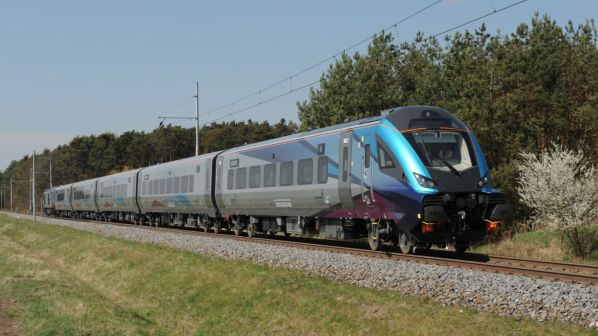
First Group is one of Britain’s largest franchise owners, holding four contracts: Great Western Railway (GWR) and TransPennine Express (TPE) as sole owner; and SWR and Avanti West Coast as lead partner in respective 70:30 joint ventures with MTR and Trenitalia.
Mr Steve Montgomery, managing director of First Rail, says that while the EMAs were far from perfect - and this was to be expected given how quickly they were drawn up - they do demonstrate the value the government places on the rail sector due to its importance to the economy - estimated at around £31bn per year according to research conducted by economic analysts Oxera.
“The EMAs allowed us to rebase what was required from government to provide the service levels that they thought were necessary,”
Mr Steve Montgomery, managing director of First Rail
With funding assured, Montgomery says as the pandemic took hold, Train Operating Companies (TOCS) worked closely with government ministers, the Department for Transport (DfT), and infrastructure manager Network Rail (NR) to develop a system that could adequately serve key workers. He says that three or four timetable iterations were required; initially as services were reduced and again as they gradually increased as demand returned.
“The EMAs allowed us to rebase what was required from government to provide the service levels that they thought were necessary,” Montgomery says. “We worked closely with them to make sure that the services out there were fit for purpose in terms of covering the right groups of people. And then making sure we were able to step up in a reasonably agile way. That took a lot of work between the TOCs working with our colleagues in NR.”
Montgomery adds that the situation meant that operators were often running a lot of trains with not a lot of people on them. He was also keen to praise staff forced to react quickly to what was an unprecedented and difficult situation.
“Some people were very sick and some were losing their lives,” Montgomery says. “Our staff were asked to come out and to continue to work through that and we have to admire the courage of people doing that.”
Maintaining a safe environment was a big part of the challenge of keeping the railway running for passengers. Operators increased the number of cleaners used to clean trains and stations by 25% and Montgomery says a lot of innovation took place to make sure trains were as clean as possible to reassure passengers; new cleaning products and cleaning regimes were introduced while operators were quick to signpost trains and stations to enforce social distancing.
“We also introduced a new reservations system so that we could ensure customers booking for long-distance journeys would remain safe,” Montgomery says.
As a largely six-month measure, the EMAs were followed by the Emergency Recovery Measures Agreement (ERMAs), which came into force on September 20 2020 and vary in length from six to 18 months. ERMAs are similar to the EMAs in that the DfT is continuing to waive the operator’s revenue, cost and contingent capital risk while receiving any farebox revenue. However, the ERMAs have tougher performance targets and a reduced maximum management fee of 1.5% of the cost base of the franchise, compared with up to 2% under the EMAs.
There is also a fixed payment and an additional performance-based fee dependent on measures such as punctuality, passenger satisfaction and financial performance. These fees could total £100m for some operators by the end of the agreements and some reportedly threatened to walk away if the fee was too low.
The contracts apply to all franchises apart from GWR and Southeastern, held by Go-Ahead-Keolis, which remain under extended EMAs under the terms of direct award franchise agreements which were renewed during the pandemic. Arriva has a similar arrangement for CrossCountry under the terms of its three-year direct award franchise, which came into effect on October 18.
The cost of these arrangements is eye-watering. According to filings issued by the Department for Transport, the government paid the operators £4.06bn between March and September 2020. The ERMAs were estimated to be costing the taxpayer £900m a month at their peak and the government has earmarked £7-9bn to support the railway in 2021. The chancellor, Mr Rishi Sunak, allocated £2.1bn to the DfT to cover April, May, and June, a monthly cost of £700m.
Crucially, the ERMAs also spelt the end for franchising. They are due to be replaced by new direct award National Rail Contracts (NRCs), the precursor to a new system for train operation in Britain. The details of this will be outlined in a government White Paper, which will finally respond to the recommendations of the Williams Review.
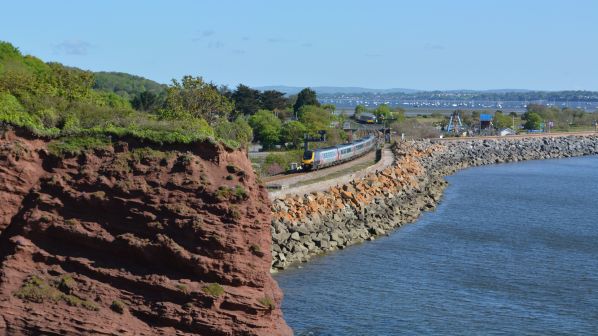
Concluding the NRCs has though been a difficult and protracted process.
The December 2020 deadline to reach an agreement with operators to terminate pre-existing franchises was extended to the end of January but negotiations with four operators over the settlement remain underway: c2c held by Trenitalia; TPE; West Midlands held by Abellio-East Japan Railway-Mitusi; and Greater Anglia held by Abellio-Mitsui.
First Group agreed an exit fee of £33.2m for SWR in December, the only operator so far to do so. Avanti, Chiltern, held by Arriva, East Midlands held by Abellio, and Govia Thameslink held by Go-Ahead-Keolis, all agreed zero settlement fees.
Negotiations continue
Yet even where the settlement has been agreed, the operators and the DfT have been unable to conclude the terms of the NRC. ERMAs for SWR, c2c and TPE were all due to conclude at the end of March, but negotiations continue with the deadline extended to the end of this month. All three of these franchises were in a difficult financial position before the pandemic and reports indicate that both sides are split on the amount of cost reductions that are acceptable.
If agreements cannot be reached, ownership of the franchise will switch to the government’s operator of last resort, a situation the government is keen to avoid. Indeed, rail minister, Mr Chris Heaton-Harris, told an All-Party Parliamentary Rail Group (APRG) meeting on March 23, that he expects the first of the NRCs to be rolled out in the “next three to four months.”
“It’s quite important that the sector remains stable for us because it is going to be crucial in our efforts to rebuild the economy as we recover,” Heaton-Harris said.
Montgomery says discussions for TPE and SWR are progressing well and that he remains hopeful of reaching a suitable arrangement. When asked what he sees as an optimal solution, Montgomery says the contracts must allow owning groups like First the space to bring the innovation they have brought to the rail industry over the past 25 years.
“Where the old franchising system is coming to an end, there were a lot of good aspects within that that helped to grow overall patronage over the years, and was very successful,” Montgomery says. “We always talk about how the last three or four years have been more challenging. But I think with some changes to those types of contracts, we can make it something meaningful going forward again. But it is going to take time.”
“It’s quite important that the sector remains stable for us because it is going to be crucial in our efforts to rebuild the economy as we recover.”
Mr Chris Heaton-Harris, rail minister
Publication of the White Paper is much anticipated having been pushed back from the provisional date of autumn 2019 announced by Shapps’ predecessor, Mr Chris Grayling, when launching the review in September 2018. The pandemic ended any hope of publication in 2020, although Shapps said it did accelerate elements of the review’s output, likely through the EMAs, ERMAs and NRCs, which are acting as an effective stop-gap to the new system.
Shapps told a House of Commons Transport Committee on February 3 that he remained keen to publish the review, and given that he has worked on it for the last year and a half, he expects a “Williams Shapps” version to emerge. Regional and local elections on May 6 are the latest fly in the ointment (see panel above). But once these have concluded, the overriding thought is that the White Paper will be published by the end of this month.
Accountability
There is optimism in the industry that the government’s preferred structure will right the wrongs of the old system. A single coordinating body, separate from government, is a big demand for RDG according to Nisbet who says RDG was happy to see the end of franchising because accountability in the industry was no longer clear.
“We want the government to set the exam question, which is ‘what is the railway for?’ and then for that body to enact the strategy to deliver that,” Nisbet says. “We believe the arm’s length body will effectively be the police officer or Fat Controller that can hold rail companies to account.”
It is also hoped that the arm’s length body will support a consistent pipeline of investment, including efforts to decarbonise the network to avoid the existing stop-start approach, which has caused issues for the supply chain.
What form this body will take remains up for debate. It could be that parts of ORR and RDG are incorporated. “We are not precious about this and are aware as the trade body that we could be fundamentally changed,” Nisbet says.
However, there is a desire for such a body to sit above operators and NR to avoid a return to the Strategic Rail Authority (SRA) model. This was drawn too far into the political orbit, and although defunct since 2005, its legacy has lived on in franchising: operators still have to seek DfT approval for even basic commercial decisions such as running an extra coffee cart on a long-distance train.
Montgomery understandably sees the private sector playing an important part in the future but he wants to see a better balance between risk and reward than under franchising, where he says there was too much risk and the reward was not in the right place.
Offering private operators the flexibility to innovate is therefore considered crucial to success. However, Nisbet says the government should be mindful of simply swapping a one-size fits all franchising model for another one-size fits all model which fails to take into account the complexity of the operating market.
For example, concessioning where the government pays a fixed fee might be appropriate for commuter services where users do not want a choice, they simply want to get to their destination as quickly and easily as possible. But this may not work for inter-city or long-distance. “Here you are facing different kinds of competition, aircraft or even laptops.” Nisbet says. “This is where would we like to see more competition, including perhaps open-access.
“What we don’t want to see is a constrained private sector. If you’re going to have the private sector then we have to see its benefits, which is competition that drives down prices to drive innovation. We want to see the private sector incentivised to deliver for passengers and to really own the customer.”
The complexity of the situation that the reforms are attempting to address is found in Montgomery’s warning against over fragmentation.
GWR, which comprises commuter services in west London and Bristol, as well as regional and long distance between London, Bristol, South Wales and the southwest, could be a candidate for splitting up, as it was under earlier franchises. However, Montgomery says with new trains and electrification of the London - Cardiff route transforming the offer on many routes, having a single integrated service across the region is one of the franchise’s strengths and a reason that passenger numbers were going up before the pandemic.
“You’ve got to ensure that you’re identifying things that will present new opportunities rather than just rolling over the same things,” Montgomery says. “If you do that you’re effectively just eating into the same pot of money.”
Fundamental fares reform is another likely outcome of the White Paper according to Heaton-Harris. With more than 50 million possible fares, Britain’s system is broken and is a real area of consternation for passengers. Operators also have no control over regulated fares set by government, which make up around 50% of the total, limiting their ability to be innovative.
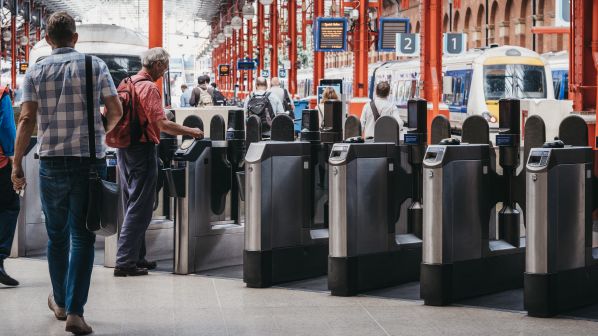
New market
Any reforms that do take place will do so in a market potentially changed forever by the pandemic.
Mr Anthony Smith, chief executive of passenger watchdog Transport Focus, says research of passenger behaviour indicates that office workers are likely to travel to work on two or three days, spending the rest of the working week at home. Longer, flatter peaks are also expected as flexible working means people are more inclined to avoid the early morning rush to the office.
“The five-day season ticket and annual season ticket were dying, but Covid has really put a nail in the coffin,” Smith says.
In the short-term an extra emphasis on long-distance travel is expected, particularly with international travel remaining limited, which is an opportunity for the sector. Already operators such as Avanti and Govia Thameslink are running more trains on weekends than on weekdays, an unprecedented situation.
Smith says that whatever form the new passenger operations model takes, operators will be incentivised to grow traffic so they must have the flexibility to tap into new markets. “It is really important to have local knowledge, local marketing and the ability to try new things to see what works and not a centralised diktat about how the ticketing system should work,” he says.
“The five-day season ticket and annual season ticket were dying, but Covid has really put a nail in the coffin.”
Mr Anthony Smith, chief executive of passenger watchdog Transport Focus
“Your captive audiences have dissipated to a degree so you are becoming much more like a normal retail experience, where you’ve got to tailor your product to the market that you’re dealing with who may have choices, and therefore you’ve got to tempt them. It’s got to be a good experience.”
Nisbet says RDG favours a potential tap and go system that integrates with other modes and can support dynamic pricing to lure people onto the network when it is less busy. He says simply adding a flexible ticket option to the existing fares “will not cut it.” Montgomery says the pandemic has sped up the digitisation of ticketing and he hopes progress will continue so operators can offer passengers more of what they want.
Smith agrees and says that operators should play on the strengths of the network, which in some parts is really well connected, and move away from extortionate walk-up fares so rail is a viable alternative to the car. “If you have the right products you can get people to travel more,” he says.
Bringing passengers back is the biggest challenge facing the sector post-pandemic. The government’s ludicrous “the virus takes the train” campaign, which was intended to scare people away from travel, has left much of the population sceptical of the safety of using trains. This is in spite of scientific evidence showing it is no more unsafe than anywhere else. Transport Focus data from the week of April 23 shows that 89% of regular rail users feel safe on services in relation to Covid-19 compared with 52% of non-users.
While rail traffic remains suppressed, road traffic has all but returned to pre-pandemic levels. The car has been presented as a form of personal protective equipment (PPE). And if this trend continues, it will present grave consequences for Britain’s towns and cities, and the government’s decarbonisation targets. Modal shift is desperately needed, and in a rail market potentially changed forever by the pandemic, the government’s White Paper really needs to get it right. We all wait to see what transpires in the next few weeks and months.
Welsh and Scottish government incumbents call for greater say in rail policy
THE Wales & Borders franchise entered government control under an operator of last resort in February after the Welsh government failed to reach an agreement with the KeolisAmey joint venture, which has operated Transport for Wales trains since 2018, and was providing the service under an EMA with the Welsh government.
ScotRail will also enter the same arrangement in March 2022 following the conclusion of the franchise held by Abellio. The Scottish government says that given the delays to the Williams Review, awarding another franchise in the current climate is inappropriate. Abellio is currently operating under an EMA funded by the Scottish government.
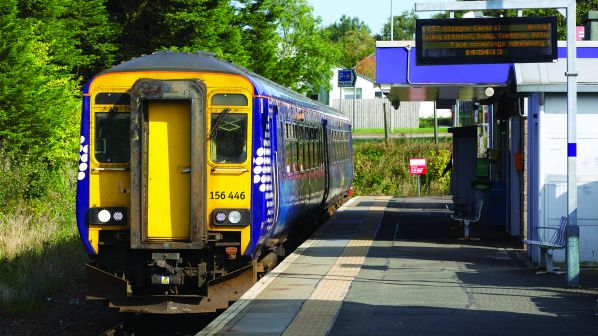
Photo: Robin Ralston
With elections on May 6 and a purdah period throughout the month of April, seeking comment from both the Welsh and Scottish governments on the future of rail operations in their respective countries was difficult. However, the incumbent Scottish National Party (SNP), which is expected to retain its majority in the Scottish parliament, is clear on how it sees the future of Scottish rail operation.
“Our view has always remained that an integrated, public sector-controlled railway, fully accountable to Scottish ministers and Parliament will best serve Scotland,” the SNP says. “The full devolution of rail powers to Scotland is necessary to allow us to consider a comprehensive range of options for the delivery of rail services that meet the needs of Scottish passengers, businesses and taxpayers.”
Wales
The Welsh Labour incumbent is expected to be challenged by the Conservatives in elections for the Welsh assembly. The party says Wales must get its fair share of future rail funding.
“Services for the Wales & Borders franchise are devolved to Wales, but infrastructure outside of the valleys lines is still the responsibility of the UK government,” the party says. “Despite Wales having 5% of the UK population, 11% of track miles and 20% of all level crossings, Wales continues to receive only 1-2% of rail enhancement funding from the UK Conservative government.
“The Welsh Labour Government recently brought the Wales & Borders franchise back into public ownership through Transport for Wales and believes in a public model where the responsibility and powers for infrastructure are comprehensively devolved to the Welsh government along with a fair funding settlement.”
Open-access operators ride out the storm
OPEN-access operators Grand Central, a subsidiary of Arriva, and Hull Trains, a First Group subsidiary, returned from a third coronavirus pandemic hibernation period during the week of April 12. Both operators suspended services on their respective routes throughout government lockdowns as open-access was exempt from the state support provided to franchisees.
Mr Steve Montgomery, director of rail at First Group, says First stood behind Hull Trains and did everything it could to reduce losses and save the business, including accessing the government employee furlough scheme. With Hull Trains’ fleet of five five-car class 802/3 bi-mode inter-city trains a major fixed asset, it also worked with rolling stock providers and the maintainers to keep the cost base down.
However, it could not avoid 27 redundancies, a situation Montgomery says was challenging for everyone at the company. “The team have rallied around and tried to keep the costs down and now there is an opportunity to grow back out of this,” Montgomery says.
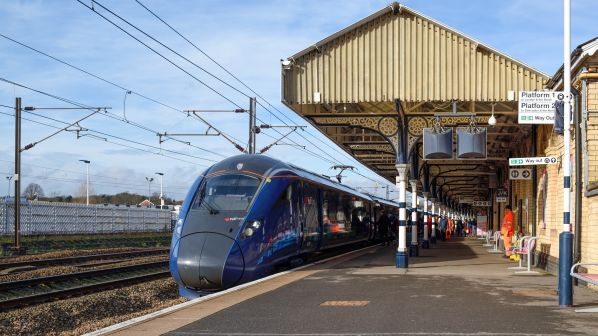
Hull Trains is currently operating three trains Monday - Thursday between Hull and London King’s Cross and six services on Friday, Saturday and Sunday. Further expansions of the timetable are planned from May 17 and June 7.
“As we see numbers growing, we will step up these services further towards what I would say is a full service,” Montgomery says. “We do believe it is a strong business. It will come back, and we will have it back into profit as soon as we can.”
East Coast
Meanwhile, First is busy preparing its new London King’s Cross - Edinburgh East Coast Trains open-access service, which Montgomery says will launch later this year. “There is no official date yet, but it looks likely that we will launch in the final quarter of the calendar year,” Montgomery says.
The new service will stop at Stevenage, Newcastle and Morpeth, and offer average fares of less than £25. Five trains will operate per day in each direction, including the first London - Edinburgh service of the day, arriving in the Scottish capital before 10.00. First is set to operate a fleet of five new five-car class 803 EMUs, which have been assembled at Hitachi’s Newton Aycliffe plant.
“We’re doing a lot of work to understand what the new market will be like,” Montgomery says. “Once everyone starts travelling again, we believe this will also be a very successful business.”
